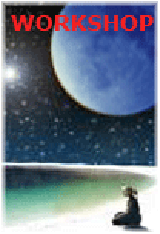
Meditation the Christian Way
Meditation is one of the most powerful forms of prayer available to Christians. It is essentially a concentrating of the mind on Scripture, under the guidance of the Holy Spirit. This covers both the Old and New Testaments, but many opt to focus on the latter, at least until they've gained some experience.
The Approach to Meditation
The general approach has been developed and passed down through the centuries. Individuals like Ignatius Loyola, John of the Cross, and Therese of Avila have been credited with spearheading Christian meditation as a form of prayer. Many agree that this approach to prayer is one that no Christian can afford to ignore, for its objective is to take one into the very center of God through the word that he has inspired.
Meditation requires one "to let go and let God." It is not something that one accomplishes on his own; rather, Christians believe that it is the fruit of God’s grace working within the individual, providing he or she allows this to occur. The experience can be very moving and dramatic, sometimes less so. If one believes that the Holy Spirit is always at work within us in prayer, one must accept the experience.

The Method of Meditating
This method of meditating is relatively simple and can be summarised in the following steps:
-
Select a short selection from the Bible. The New Testament is a good starting point.
-
Ask the Holy Spirit to lead you, instruct you and impart to you what he desires you to know and acquire from the text.
-
Read the selected passage several times, sufficient to fix the exact sequence of events and any conversation in your mind. This will enable you to avoid interrupting the meditation due to a need to revisit the passage.
-
Sit comfortably and lay the Bible aside. Take some time to come to a state of quietness and recollection.
The selection that will be the focus of your meditation can be found in one of the gospels or the letters, but many find it easier to start with a gospel passage. Beginners should select a short passage, though it's important to ensure that the selection covers a full event in the life of Jesus. For example, try the events surrounding Zacchaeus’ encounter with Jesus in Jericho (Luke 19. 1 – 10).
Different people have different ways of accomplishing this meditation exercise. It may simply involve being quiet and emptying the mind of other thoughts. Some may opt to use a formal prayer or two to obtain a sense of God’s presence.
Begin meditating by letting your mind dwell first on the physical surroundings in which the event occurs and, as Ignatius Loyola suggests, allow it to gradually bring you into the action. For example, in the present instance, consider how hot Jericho would be, down near the Dead Sea, which is the lowest place on Earth. Consider the dust of the streets, the crowds of people milling around because of the news of Jesus’ imminent arrival; the pushing, jostling, the noise of conversations. And where are you in all this? Do not deliberately place yourself in a particular position or perspective; allow the Holy Spirit to do that. Trust him to do it. Then Jesus will appear down the road…and you let the spirit take you through the events.
Many Christians find that meditating enables them to be face-to-face with Jesus. Meditation is a good time to ask any questions; questions about the events you are now for a time part of, about things he has said or done which you have never fully understood, or even personal questions about problems in your everyday life. Sometimes the response will be so real, and your faith so challenged, that the whole sequence of events will shudder to a stop. Not always, for sometimes it will seem dry and rather drag – but we need to trust the Holy Spirit at this time also, and go on, integrating these periods into our lives every day.
It is all quite simple – but the effect which that experience can have on you is potentially life-changing. Yet the effect will tend to be greater the more you practice this kind of meditation, the more you feel comfortable with the actual process and the sequences in meditation.
Religious Psalms Meditation
Meditation is often used for religious purposes. Some people feel blessed while meditating on prayers, while others feel a Divine connection when they meditate on the Bible. Psalms are popular for meditation because, for the most part, they are quite joyous and offer praise to God.
How to Meditate on Psalms
Psalms are poems that are meant to be accompanied by music. In the Bible, it speaks of how David, (who wrote many of the Psalms,) puts Levites in charge of the service of the song. If possible, it can be helpful to put on some instrumental music that plays quietly in the background. Stringed instruments are preferred for this meditation.
When ready to begin meditating, read a Psalm and then meditate on it. Think about the theme the Psalm is trying to convey. Think about all of God's attributes and the importance of God in life. Imagine a bright, gold light coming down from Heaven and surrounding you. At the end of the meditation, be sure to give thanks for everything that was experienced.
Psalms Meditation Exercise
All too often, a person is confused about something and needs some help in making a decision. Many people find Psalms to be comforting and a way to find answers to questions.
After reading a Psalm, begin meditating to clear the mind. Focus on breathing and nothing else. Once the mind is cleared, ask God a question about what is troubling you, then see what answers enter the mind.
Psalms and Bible Study for Kids
Psalms can make for a great way for children to praise the Lord. A lot of kids can't sit still for too long, so for this exercise, meditation doesn't have to occur. Instead, just have the children close their eyes and listen to someone read a Psalm.
Tell them to concentrate on everything being said while trying to picture the meaning of the Psalm in their minds. After, ask them what they pictured and what the Psalm meant to them.
A fun way to celebrate a Psalm is to have each child make up a melody to a Psalm. Because some Psalms are rather long, it's best to pick a shorter Psalm or just a portion of a longer Psalm. Next, let each child teach the Psalm to everyone else. When ready, have everyone sing the Psalm together.
Psalms are meant to be a joyous way to celebrate God. They give wonderful insight while meditating along with allowing for a deeper religious or spiritual relationship with God
After the Meditation
The period following meditation is very important, as it's a time when you can contemplate, reflect upon and learn from the meditation experience. If something unusual occurred -- an event or conversation, or anything else you do not understand -- do not finish the exercise before asking the Spirit to provide you with greater insight. Prayer is (and should be) a time to exercise one's faith. After all, we are talking to someone whom we cannot see! But often, when our prayer is formal or following a rigid routine, it can be very easy to lose the real sense of what is essentially an act of faith. Scriptural meditation makes that less likely to occur.
Meditating on the gospels should not become the focus of your daily meditation. It's beneficial to the alternate gospel with meditations on other parts of Scripture, say, the New Testament, especially the letters. But it is crucial to keep these scripture excerpts short. Some good selections include 1 Corinthians 13. 4 – 7 (verses 8 – 10 can be used for another meditation); Romans 8. 1 – 2; Hebrews 12. 1 – 2; 1 Peter 3. 13 – 17, and so forth. Once you get used to the Spirit guiding you through your meditations, you can ask him for direction in selecting the following day's passage.
About the Author
About the author: Erica R. Gibson is a tech writer at the service where everyone can ask to write my essay cheap. She is fond of learning something new. In this case, likes reading self-development blogs to improve her professional and personal knowledge.
Disclaimer:
The above guest post is published based on the premise that it will be helpful and informative. The opinions made within it are those of the author and not of sunnyray.org. The links you may find within this post do not necessarily imply our recommendation or endorsement of the views expressed within them.















